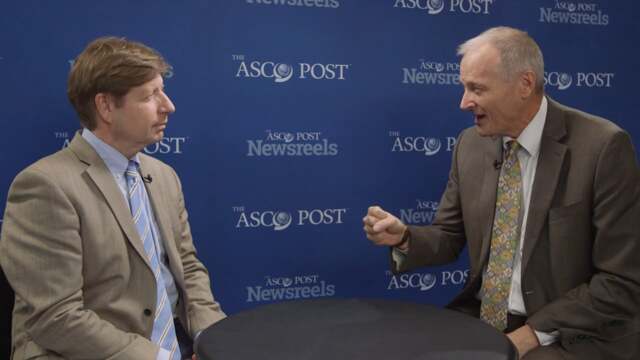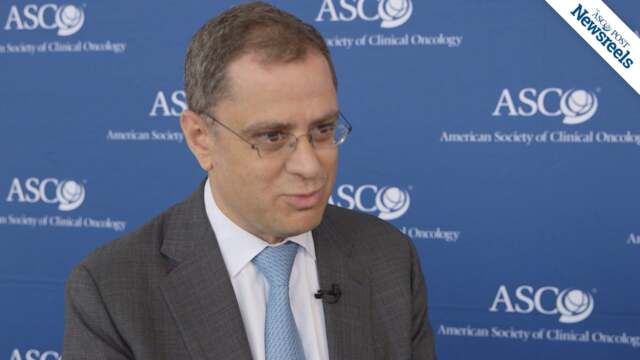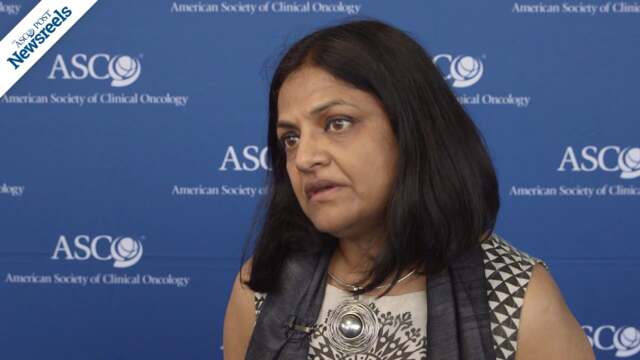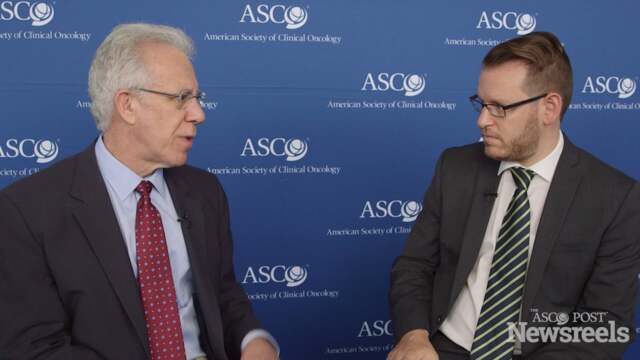Toni K. Choueiri, MD, and Paul L. Nguyen, MD, on Prostate Cancer: Expert Perspectives on Four Studies
2016 ASCO Annual Meeting
Toni K. Choueiri, MD, and Paul L. Nguyen, MD, both of the Dana-Farber Cancer Institute, discuss four key studies on high- and intermediate-risk prostate cancer, as well as localized disease (Abstracts 5001, 5003, 5023, and 5021).
The
Marcel Verheij, PhD, of the Netherlands Cancer Institute, and John Marshall, MD, of Georgetown University Lombardi Comprehensive Cancer Center, discuss findings from this multicenter phase III study of neoadjuvant chemotherapy followed by either surgery and chemotherapy or surgery and chemoradiotherapy in resectable gastric cancer (Abstract 4000).
Ghassan K. Abou-Alfa, MD, of Memorial Sloan Kettering Cancer Center, discusses findings of this phase III study of sorafenib plus doxorubicin versus sorafenib in patients with advanced hepatocellular carcinoma (Abstract 4003).
Paul E. Goss, MD, PhD, of Massachusetts General Hospital Cancer Center and Harvard Medical School, discusses disease-free survival results from a study extending adjuvant letrozole for 5 years after completing an initial 5 years of aromatase inhibitor therapy alone or preceded by tamoxifen (Abstract LBA1).
Usha Menon, MD, of University College London, discusses a significant new version of a screening test for ovarian cancer that may reduce death from the disease (Abstract 5507).
Lawrence N. Shulman, MD, of Abramson Cancer Center at the University of Pennsylvania, and Daniel A. Goldstein, MD, of the Rabin Medical Center, discuss global challenges in cancer care, including treating patients in areas lacking resources, and cancer drug price disparities (Abstract LBA6500).





